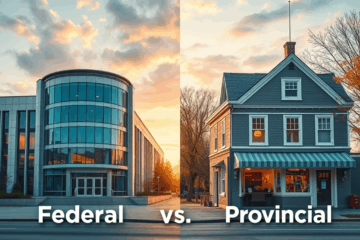Table of contents
In the dynamic world of business, disputes are inevitable. Whether they stem from contract disagreements, partnership disputes, or customer issues, it is crucial to resolve these conflicts efficiently and effectively. This blog post explores various dispute resolution methods available to businesses, their benefits, and how to choose the appropriate path.
Understanding Dispute Resolution
Dispute resolution refers to the process by which disputes between parties are settled outside the courtroom. For businesses, this not only helps in saving valuable time and resources but also preserves relationships and maintains confidentiality.
1. Negotiation
The first and most direct form of dispute resolution is negotiation. This involves the parties themselves discussing their issues and agreeing without external assistance. Negotiation is often preferred for its speed and control over the outcome.
2. Mediation
Mediation involves a neutral third party, a mediator, who facilitates discussions between the disputing parties and helps them reach a mutually acceptable agreement. Unlike judges or arbitrators, mediators do not decide the case but assist in communication and clarifying issues.
3. Arbitration
In arbitration, a neutral third party (the arbitrator) makes decisions after hearing arguments and reviewing evidence. It is less formal than court proceedings and can be binding or non-binding, depending on the terms agreed upon beforehand.
4. Litigation
Litigation is the process of resolving disputes in court. It is typically pursued when other methods fail or are deemed inappropriate due to the nature of the dispute. Litigation provides a formal resolution that is legally binding and enforceable.
5. Collaborative Law
Collaborative law is a method that involves parties and their attorneys committing to resolving disputes without going to court. This method fosters open communication and a cooperative approach to negotiations.
Benefits of Effective Dispute Resolution
- Cost Efficiency: Dispute resolution methods like mediation or arbitration can be significantly less expensive than litigation.
- Time-Saving: Resolving disputes through alternative methods is usually quicker than the court process.
- Confidentiality: Unlike public court proceedings, most alternative dispute resolution methods are private.
- Preservation of Relationships: Methods like mediation help preserve business relationships by fostering cooperation and communication.
- Control Over the Process: Parties have more control over the process and the outcome in methods like arbitration and mediation.
Choosing the Right Method
The choice of dispute resolution method depends on several factors, including the nature of the dispute, the relationship between the parties, the desired speed of resolution, costs, and whether the parties want a binding decision.
Implementing Dispute Resolution in Business Contracts
Businesses can incorporate dispute resolution clauses in their contracts to prevent escalating disputes. These clauses can specify which dispute resolution method should be used in the event of a conflict, potentially saving time and legal expenses later on.

Adopting an appropriate dispute resolution strategy is key to managing business disputes effectively. By understanding and utilizing these methods, businesses can resolve disputes efficiently and maintain smoother operational flows and better relationships.
FAQs
Dispute resolution refers to the methods and processes used to resolve conflicts and disputes between parties in a business setting.
Common methods include negotiation, mediation, arbitration, litigation, and collaborative law.
Mediation is ideal when parties seek to preserve their business relationship and need help from a neutral party to facilitate communication.
Arbitration is a private, less formal process where an arbitrator makes a decision, while litigation involves a public trial in court with a judge.
Yes, arbitration is usually binding; the decision made by the arbitrator is final and enforceable in court.
In negotiation, parties directly communicate to reach a mutual agreement without third-party intervention.
Collaborative law is best suited for disputes where parties are willing to cooperate openly to resolve their issues.
Including a clause ensures that both parties agree on how disputes will be handled, potentially saving time and costs in the future.
Mediation can vary in length but is generally quicker than going to court, often taking days to a few weeks.
A mediator facilitates discussions and helps parties find a mutually acceptable solution but doesn’t make decisions for them.
Yes, most dispute resolution processes are confidential, unlike public court proceedings.
They can enforce the agreement in court, similar to any other legal contract.
Pax Law can help you!
Contact Heena Han, a lawyer at Pax Law Corporation, where expertise and dedication converge to resolve your business law needs. As a knowledgeable lawyer with a profound understanding of Canadian business law, Heena Han offers strategic guidance and advocacy for navigating complex business legal matters. Whether it’s forming a corporation, handling commercial disputes, or advising on compliance issues, Pax Law Corporation is your trusted partner in managing business law matters. Secure your business’s future by reaching out to Heena Han today
Our lawyers and consultants are willing, ready, and able to assist you. Please visit our booking page to make an appointment with one of our lawyers or consultants; alternatively, you can call our offices at +1-604-767-9529.
Discover more from Pax Law Corporation
Subscribe to get the latest posts sent to your email.



0 Comments